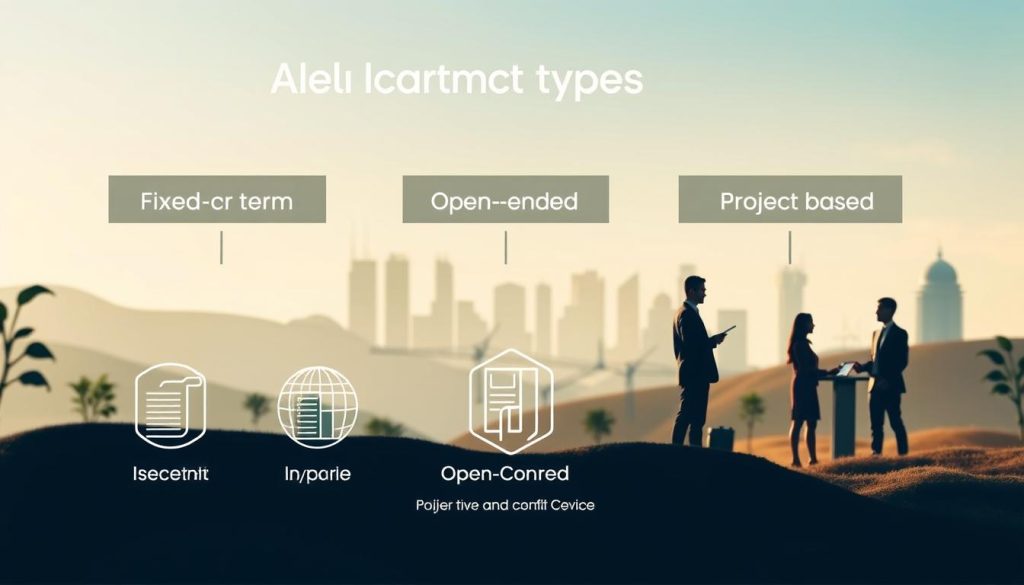For many independent professionals, the quest for a balance between autonomy and security is a constant challenge. Portage salarial emerges as a viable solution, offering the freedom of freelancing with the stability of a salaried status.
This innovative employment model establishes a tripartite relationship between the salarié porté, the entreprise de portage, and client companies, providing a structured framework that protects all parties involved.
By understanding portage salarial, professionals can leverage this unique statut to maintain their independence while benefiting from social protections, making it an attractive alternative to traditional entrepreneurship.
Table of Contents
Key Takeaways
- Portage salarial offers a balance between autonomy and security for independent professionals.
- It involves a tripartite relationship between the professional, the portage company, and clients.
- This employment model is formally recognized by the French legal system.
- It provides social protections while maintaining professional independence.
- Portage salarial is a viable alternative to traditional entrepreneurship.
What is Portage Salarial?
The concept of portage salarial has emerged as a secure path for independent professionals in France, blending elements of employment and self-employment. This unique employment arrangement is defined by a tripartite relationship between the professional (salarié porté), the portage company (entreprise de portage), and the client company (entreprise cliente).
Definition and Core Concept
Portage salarial is essentially a contractual arrangement that allows professionals to work on a mission or project basis for a client company while being employed by a portage company. This setup enables professionals to maintain their independence in terms of their prestation or service provision, including negotiating the scope, terms, and pricing of their services directly with the client.
As stated by a portage salarial expert, « Portage salarial is not just an employment status; it’s a way for professionals to exercise their profession with the security of a salary. »
« Portage salarial is a form of employment that combines the freedom of being an independent professional with the security of being a salaried employee. »
The Tripartite Relationship Explained
The tripartite relationship in portage salarial involves three distinct contracts: an employment contract between the professional and the portage company, a service agreement between the professional and the client, and a commercial contract between the portage company and the client. This arrangement is formalized through these contracts, ensuring clarity and protection for all parties involved.
| Party Involved | Role | Contract |
|---|---|---|
| Salarié Porté (Professional) | Provides prestation or service to the client | Employment Contract with entreprise de portage, Service Agreement with entreprise cliente |
| Entreprise de Portage (Portage Company) | Acts as legal employer, handles administrative tasks | Employment Contract with salarié porté, Commercial Contract with entreprise cliente |
| Entreprise Cliente (Client Company) | Receives the prestation or service from the professional | Service Agreement with salarié porté, Commercial Contract with entreprise de portage |
For more detailed information on understanding portage salarial in France, you can visit this resource.
The Evolution of Portage Salarial in France
Portage salarial, a unique employment arrangement, has a rich history in France dating back to the 1980s. Initially conceived as a flexible solution for independent professionals, it has evolved significantly over the years.
Historical Development Since the 1980s
The concept of portage salarial emerged in the 1980s as a response to the growing need for flexible work arrangements. It was designed to provide independent professionals with the benefits of employment while maintaining their independence. The early adopters were primarily consultants and experts in various fields. As the concept gained popularity, it became necessary to formalize the legal framework to protect all parties involved.
By June 25, 2008, the National Assembly and Senate passed Law No. 2008-596, which officially recognized portage salarial in the French labor code.
« A set of contractual relationships organized between a portage company, a carried person, and client companies, providing the carried person with employee status and remuneration for their services to clients through the portage company. »
This legislation defined portage salarial in Article L1251-64 of the Labor Code.
Current Legal Recognition and Framework
The legal framework for portage salarial was further strengthened with the signing of a Collective Agreement by social partners, effective July 1, 2017. This agreement provided additional security for carried employees (salariés portés) and clarified the rights and responsibilities of all parties. The current legal framework ensures that portage salarial operates within well-defined boundaries, providing a secure environment for independent professionals.
Today, portage salarial continues to evolve, adapting to the changing needs of professionals and the labor market. The system is recognized for its ability to offer a balance between independence and employment security, making it an attractive option for many.
How Portage Salarial Works
Portage salarial operates through a unique three-party contract structure that benefits both professionals and clients. This arrangement simplifies the process of independent work by establishing a clear contractual framework.
The Three-Party Contract Structure
The three-party contract structure involves the salarié porté (carried professional), the client (or entreprise cliente), and the entreprise portage (portage company). The carried professional signs a service contract with the client and a work contract (either fixed-term or permanent) with the portage company. This setup allows the professional to maintain autonomy while benefiting from the security of a salaried employment status.
Workflow and Operational Process
The operational workflow of portage salarial begins with the salarié porté prospecting for clients and negotiating the terms of their services, including scope, duration, and pricing. Once an agreement is reached, the professional informs their entreprise portage, which formalizes the arrangement through appropriate contracts.
- The professional delivers their services directly to the client with complete autonomy.
- The entreprise portage invoices the client based on the negotiated terms.
- After receiving payment, the entreprise portage calculates the professional’s salary, deducts relevant taxes and fees, and issues a payslip.
For more information on the opportunities and benefits of portage salarial, you can explore further resources.
Legal Framework of Portage Salarial
Understanding the legal framework of portage salarial requires examining both the French Labor Code and the Collective Agreement of 2017. This dual foundation provides a comprehensive structure for the operation of portage salarial in France.
Key Legislation in the French Labor Code
The French Labor Code (Code du Travail) lays the groundwork for portage salarial by defining the rights and obligations of the parties involved: the salarié porté, the client company, and the portage salarial company. It establishes the framework within which portage salarial operates, ensuring compliance with labor laws.
Key aspects covered by the Labor Code include the contrat travail (employment contract) specifics for salariés portés and the responsibilities of portage salarial companies. The code travail provisions are crucial for safeguarding the rights of salarié porté and ensuring fair practices within the industry.
The 2017 Collective Agreement
A significant development in the formalization of portage salarial was the signing of the Collective Agreement for Carried Employees (Convention Collective des Salariés en Portage Salarial) on March 22, 2017, which became applicable on July 1, 2017. This agreement marked a milestone in the industry by establishing detailed standards and practices.
- The agreement sets minimum qualification requirements for salariés portés, ensuring a level of expertise and professionalism.
- It outlines compensation structures, management fee limitations, and specific contractual obligations, enhancing transparency and fairness.
- Provisions are also made for working conditions, professional development opportunities, and dispute resolution mechanisms, further protecting the interests of salarié porté.
By establishing these industry-wide standards, the 2017 Collective Agreement has strengthened the legitimacy of portage salarial and provided greater security for professionals operating under this employment model, as outlined in article specific provisions.
Benefits of Portage Salarial for Independent Professionals
The portage salarial system provides a secure and flexible framework for independent professionals to operate within. This arrangement allows them to maintain their independence while benefiting from various protections and simplifications.
Social Security and Protection Benefits
One of the significant advantages of portage salarial is the access to social security and protection benefits. As a salarié porté, professionals are entitled to benefits such as health insurance, retirement plans, and unemployment insurance. This security net allows them to focus on their work without worrying about the risks associated with being an independent professional.
The entreprise portage (portage company) manages the administrative tasks related to these benefits, ensuring compliance with legal requirements and reducing the burden on the professional.
Administrative Simplification
Portage salarial significantly simplifies the administrative tasks for independent professionals. The portage company handles tasks such as invoicing clients, managing accounts receivable, and dealing with tax declarations and social security contributions. This allows professionals to concentrate on their core activities and client relationships, enhancing their productivity and reducing stress.
- Invoicing and payment collection are managed by the portage company, eliminating the need for professionals to chase late payments.
- Tax declarations and social security contributions are prepared and submitted by the portage company, ensuring compliance with complex regulations.
- While professionals pay frais gestion (management fees) for these services, many find that the time saved and reduced stress more than compensate for this cost.
By leveraging portage salarial, independent professionals can enjoy a more streamlined and secure working experience, allowing them to focus on their activité (activity) and client relationships.
Types of Contracts in Portage Salarial

In the realm of portage salarial, understanding the types of contracts available is crucial for independent professionals seeking stability and security. The contractual framework within this employment arrangement is designed to offer flexibility and protection for both the salarié porté and the entreprise de portage.
Fixed-Term Contracts (CDD)
Fixed-term contracts, or Contrats à Durée Déterminée (CDD), are one of the contractual options available in portage salarial. These contracts are established for a specific duration and are typically used for particular projects or missions with defined start and end dates. The contrat outlines the terms of the engagement, including the scope of work, duration, and compensation. CDDs provide a clear framework for both the porté and the client company, ensuring clarity on the project’s objectives and timeline.
Permanent Contracts (CDI)
Permanent contracts, or Contrats à Durée Indéterminée (CDI), represent another contractual possibility within portage salarial. A CDI is concluded between the entreprise de portage and the salarié porté for the provision of services to one or multiple entreprises clientes. Unlike CDDs, CDIs do not have a predetermined end date, offering greater stability and continuity for professionals with established client bases or ongoing service relationships. The labor code provisions regarding training, contract execution, and termination apply to these contracts, providing carried professionals with the same protections as traditional employees.
- Permanent contracts establish an ongoing employment relationship between the carried professional and the portage company.
- CDIs offer greater stability and continuity, particularly suited for professionals with multiple clients or regular project transitions.
- Standard labor code provisions apply, ensuring carried professionals have similar protections to traditional employees.
Who Can Benefit From Portage Salarial?
Portage salarial is not limited to a specific group; it caters to diverse professional needs. This employment arrangement is particularly beneficial for individuals seeking flexibility, security, and administrative support in their professional endeavors.
Entrepreneurs and Business Creators
Entrepreneurs and business creators can utilize portage salarial to test their business ideas without immediately establishing a company. This arrangement allows them to focus on developing their projects while benefiting from social security and administrative support.
Experienced Professionals and Executives
For experienced professionals and executives, portage salarial provides an opportunity to offer their services as consultants or experts while maintaining a stable income and social benefits. It is an attractive option for those who wish to continue working after retirement or during a career transition.
Retirees and Pre-retirees
Retirees and pre-retirees can also benefit from portage salarial by supplementing their income through consulting or project-based work. This arrangement allows them to remain active professionally while enjoying their retirement benefits.
Job Seekers and Career Changers
Job seekers and career changers can leverage portage salarial as a strategic pathway back into the workforce. They can offer their services as consultants while maintaining certain unemployment benefits. Under specific conditions, professionals can combine Aide au Retour à l’Emploi (ARE) with income earned through portage salarial, creating a financial bridge during their transition.
The benefits of portage salarial for job seekers include:
- Using portage salarial as a strategic pathway back into the workforce
- Combining unemployment benefits with income earned through portage salarial
- Testing new professional directions without committing to full self-employment
- Building credibility and experience in a new domain with administrative support
- Potential for permanent opportunities through client companies evaluating their skills
By understanding the diverse groups that can benefit from portage salarial, individuals can make informed decisions about their career paths and financial stability.
Eligibility Requirements for Portage Salarial
Professionals seeking to benefit from portage salarial need to fulfill certain conditions. The eligibility criteria are designed to ensure that this employment arrangement is utilized by individuals with the necessary expertise and qualifications.
Expertise, Qualification, and Autonomy
To be eligible for portage salarial, a professional must demonstrate a certain level of qualification and autonomy in their work. This means having the ability to work independently and provide high-quality services to client companies. The activité or activity carried out by the salarié porté should be professional in nature, requiring a significant level of expertise.
Minimum Education and Experience Criteria
The 2017 Collective Agreement for portage salarial sets specific minimum education and experience requirements. According to Article 2.2, a salarié porté must have at least a Level 5 professional qualification, equivalent to a two-year post-secondary degree (BTS or DUT), or significant professional expérience of at least three years in the same sector of activité. These requirements ensure that portage salarial is primarily available to professionals with established expertise.
- Possess a Level 5 professional qualification (BTS, DUT, or equivalent)
- Have significant professional experience (at least three years) in the same sector
- Be capable of providing high-value services to client companies
By setting these criteria, the portage salarial system maintains the quality and credibility of services provided, protecting the reputation of this employment model.
Eligible Professions for Portage Salarial
Understanding the professions eligible for portage salarial is crucial for independent professionals seeking to leverage this employment arrangement. The French labor code outlines specific guidelines that determine which professions can benefit from portage salarial.
Intellectual Service Providers
Portage salarial is primarily designed for intellectual service providers. These professionals offer high-value services that require specialized knowledge and expertise. Examples include consultants, IT professionals, engineers, and experts in various fields who provide services on a project basis. The nature of their work is typically characterized by autonomy, intellectual input, and the absence of direct hierarchical supervision.
- Consultants in various fields such as management, strategy, or human resources
- IT professionals and software developers
- Engineers and technical experts
- Experts in specific industries providing advisory services
Restricted Professions and Activities
Not all professions are eligible for portage salarial. The French Labor Code explicitly prohibits its use for personal service activities (services à la personne), including childcare, assistance to elderly or disabled individuals, and domestic household services. Article L.1254-5 of the Labor Code outlines these restrictions, with violations subject to financial penalties.
- Personal service activities such as childcare and elderly care
- Domestic household services
- Regulated professions like medical professionals, notaries, lawyers, and architects due to specific licensing and ethical standards
These restrictions ensure that portage salarial is used appropriately for its intended purpose of supporting independent intellectual service providers, maintaining regulatory oversight in sensitive sectors.
Financial Aspects of Portage Salarial
The financial structure of portage salarial offers a unique blend of security and incentives, making it an attractive option for independent professionals. This arrangement not only provides a stable income but also rewards business development efforts.
Fee Structure and Management Costs
The fee structure in portage salarial typically involves management costs that are deducted from the professional’s earnings. These costs cover the administrative and financial management services provided by the portage company. The exact percentage can vary depending on the portage company and the agreement made with the professional.
Key components of the fee structure include:
- Management fees for administrative services
- Financial management and accounting services
- Other operational costs associated with portage salarial
Minimum Salary Requirements
In portage salarial, minimum salary requirements are governed by the applicable labor laws and collective agreements. These requirements ensure that the salarié porté receives a fair and minimum remuneration for their work. The specifics can vary, but the principle is to provide a salary that is commensurate with the professional’s qualifications and experience.
The minimum salary is typically defined by the industry or sector-specific agreements, ensuring that professionals are adequately compensated.
Business Development Bonuses
A significant financial aspect of portage salarial is the business development bonus, also known as indemnité d’apport d’affaires. This bonus is a percentage of the gross remuneration earned from client contracts and is designed to incentivize professionals to develop their client base. According to the Labor Code (Articles L.1254-15 and L.1254-21), this bonus must be mentioned in the employment contract and is typically set at 5% of the gross remuneration.
Benefits of the business development bonus include:
- Additional financial incentive for securing client contracts
- Recognition of the professional’s entrepreneurial efforts
- Alignment with the independent nature of their role
The Activity Account in Portage Salarial
The activity account is a crucial component of portage salarial, providing transparency and clarity for independent professionals. It serves as a comprehensive financial management tool, ensuring that professionals are well-informed about their financial situation.
Purpose and Function
The activity account is designed to provide a clear and detailed overview of a professional’s financial transactions within the portage salarial framework. It records all payments received from clients, management fees charged, professional expenses reimbursed, and social and tax contributions paid. As stated by a portage salarial expert, « The activity account is essential for maintaining transparency and trust between the professional and the portage company. »
The account is managed by the portage company, which is responsible for ensuring that all financial transactions are accurately recorded and reported. This includes payments received from clients, which are then allocated towards management fees, professional expenses, and the professional’s remuneration.
Monthly Reporting and Transparency
Each month, the salarié porté receives a detailed report on their activity account, providing a comprehensive overview of their financial situation. The report includes information on payments received from clients, management fees (frais gestion) charged, professional expenses reimbursed, and social and tax contributions paid.
As part of the portage salarial arrangement, the activity account is updated chaque mois to reflect the latest financial transactions. This ensures that professionals have access to up-to-date information about their financial situation, enabling them to make informed decisions about their work.
« Transparency is a fundamental principle in portage salarial, with portage companies required to provide carried professionals with detailed monthly reports on their activity accounts, » as highlighted in the portage salarial regulations. This regular reporting ensures that professionals are always informed about their financial situation, building trust and allowing for informed decision-making.
Client Companies and Portage Salarial

In the portage salarial framework, client companies have distinct obligations that must be adhered to. Client companies engaging carried employees through portage salarial must comply with specific legal obligations to ensure a smooth and legally compliant operation.
Conditions for Using Carried Employees
Client companies can engage carried employees, or « salarié porté, » under certain conditions. A commercial contract must be established between the portage company (« société de portage ») and the client company (« entreprise cliente ») within two business days (« jours ouvrables ») following the start of the service provision. This contract must detail all aspects of the service arrangement negotiated between the carried employee and the client company.
Legal Obligations and Potential Penalties
Client companies are legally obligated to pay the portage company the full agreed price for services according to the payment schedule specified in the contract. They must also inform the portage company of any events that might impact service delivery. Non-compliance with these obligations can result in significant penalties, including fines of €3,750 for violations such as improper use of portage salarial or failure to establish a timely contract. Repeat offenses can lead to fines of up to €7,500.
| Obligations | Penalties for Non-Compliance |
|---|---|
| Establish a commercial contract within 2 business days | €3,750 fine |
| Pay the full price according to the contract | €3,750 fine |
| Inform the portage company of events impacting service delivery | €3,750 fine |
| Repeat offenses | €7,500 fine |
The portage salarial system relies on the cooperation between client companies, portage companies, and carried employees. By understanding and adhering to the legal obligations, client companies can effectively utilize the portage salarial system.
Comparing Portage Salarial to Other Employment Statuses
Portage salarial offers a unique blend of independence and security, distinguishing it from other forms of employment. As independent professionals consider their options, understanding the differences between portage salarial, micro-entrepreneurship, and traditional employment is crucial.
Advantages Over Micro-Entrepreneurship
Portage salarial provides several advantages over micro-entrepreneurship. While both models offer flexibility, portage salarial includes social protections such as paid leave, health insurance, and retirement contributions, which are not typically available to micro-entrepreneurs. This makes portage salarial an attractive option for those seeking financial security without sacrificing autonomy.
Moreover, as a salarié porté, professionals benefit from the administrative support provided by the portage company, simplifying tasks such as invoicing and tax compliance. This support allows professionals to focus on their core mission and client relationships.
Differences From Traditional Employment
Unlike traditional employment, portage salarial offers professionals the freedom to work with multiple clients and entreprise simultaneously, diversifying their professional portfolio. Carried employees maintain control over their work methods and client negotiations, operating independently with the portage company serving as an administrative intermediary.
| Employment Status | Autonomy Level | Social Protections | Client Management |
|---|---|---|---|
| Portage Salarial | High | Yes | Multiple Clients |
| Traditional Employment | Low | Yes | Single Employer |
| Micro-Entrepreneurship | High | No | Multiple Clients |
In conclusion, portage salarial strikes a balance between the autonomy of micro-entrepreneurship and the security of traditional emploi, making it an appealing choice for many professionals.
Portage Salarial Companies: Roles and Obligations
Portage salarial companies play a crucial role in supporting independent professionals by providing a range of services and financial guarantees. These companies act as intermediaries between the carried employees and their clients, handling administrative tasks and ensuring compliance with legal requirements.
Financial Guarantees and Security
One of the primary roles of portage salarial companies is to provide financial guarantees and security to carried employees. This includes managing invoices, handling payments, and ensuring that carried employees receive their salaries on time. By doing so, these companies mitigate the financial risks associated with independent work, allowing professionals to focus on their core activities.
| Financial Service | Description | Benefit to Carried Employees |
|---|---|---|
| Invoice Management | Handling client invoices and follow-ups | Reduced administrative burden |
| Payment Processing | Managing client payments and salary disbursements | Timely receipt of salaries |
| Financial Reporting | Providing regular financial statements | Transparency and financial planning |
Services Provided to Carried Employees
Beyond financial management, portage salarial companies offer a range of services designed to support the professional development and business growth of carried employees. These services may include networking opportunities, professional development support, marketing assistance, and access to shared resources.
- Networking Opportunities: Connecting carried professionals with potential clients and other consultants.
- Professional Development: Providing access to training programs, coaching, and resources.
- Marketing Support: Helping professionals develop their personal brand and increase their market visibility.
How to Choose the Right Portage Salarial Company

Choosing the right portage salarial company is crucial for independent professionals seeking stability and security in their careers. With numerous entreprise portage options available, it’s essential to evaluate potential partners carefully.
Key Selection Criteria
When evaluating portage salarial companies, consider the following key factors:
- Management fees (frais gestion) and overall cost structure
- Range of services provided, including administrative support and sécurité measures
- Reputation and experience in the industry
- Transparency regarding frais professionnels reimbursement policies
- Quality of customer support and responsiveness
A reputable société de portage salarial will provide clear information about their services and fees.
Red Flags to Watch For
Be cautious of portage salarial companies that:
- Offer unusually low management fees, potentially compromising on essential services
- Lack transparency about financial guarantees, a legally required protection for carried employees
- Pressure professionals to sign contracts quickly without fully explaining terms and conditions
- Have restrictive policies regarding frais professionnels reimbursement or unclear accounting practices
- Demonstrate poor responsiveness during the initial inquiry phase, potentially indicating future communication issues
By being aware of these potential issues, professionals can make informed decisions when selecting a portage salarial company.
Conclusion: Is Portage Salarial Right for You?
As we conclude our exploration of portage salarial, it’s essential to assess whether this employment status is the right fit for your professional goals. Portage salarial offers a unique middle path between traditional employment and self-employment, providing significant benefits for professionals who value both autonomy and security in their careers.
This arrangement is particularly well-suited for experienced professionals with specialized expertise who can work independently but prefer not to manage the administrative complexities of full entrepreneurship. The decision to pursue portage salarial should be based on a careful assessment of your professional goals, working style, client relationships, and financial needs.
For many professionals, the combination of entrepreneurial freedom and social protection makes portage salarial an ideal solution, especially during transitional career phases or when testing new business concepts. While not perfect for everyone, portage salarial continues to grow in popularity across France, with over 90,000 professionals now working through this innovative employment model.
To determine if portage salarial is right for you, consider consulting with established portage companies to understand how their specific offerings might align with your professional situation and aspirations. Ultimately, the best employment structure is one that supports your professional growth while providing the level of security and flexibility you need to thrive in your chosen field.
By carefully evaluating your needs and the benefits of portage salarial, you can make an informed decision about whether this statut is appropriate for your activité and career goals within a société or as an independent professional.
FAQ
What is the primary benefit of Portage Salarial for independent professionals?
The primary benefit is the security and protection it offers, including social security benefits and a stable income, while allowing professionals to maintain their independence.
How does the tripartite relationship in Portage Salarial work?
The tripartite relationship involves the independent professional (carried employee), the client company, and the Portage Salarial company. The carried employee performs work for the client company, and the Portage Salarial company manages administrative tasks and provides social security benefits.
What are the key legislation governing Portage Salarial in France?
The key legislation includes the French Labor Code, specifically articles related to Portage Salarial, and the 2017 Collective Agreement, which outlines the terms and conditions for carried employees and Portage Salarial companies.
Can anyone become a carried employee through Portage Salarial?
No, to be eligible, one must have specific expertise, qualifications, and autonomy in their work. There are also minimum education and experience criteria that must be met.
What types of contracts are available in Portage Salarial?
There are fixed-term contracts (CDD) and permanent contracts (CDI) available, offering flexibility based on the needs of the carried employee and the client company.
How are fees structured in Portage Salarial, and what are the management costs?
Fees are typically a percentage of the carried employee’s turnover, and management costs cover administrative services, social security contributions, and other benefits provided by the Portage Salarial company.
Are there any restrictions on the professions that can benefit from Portage Salarial?
Yes, certain professions are restricted or not eligible due to legal or regulatory requirements. Intellectual service providers are generally eligible, but specific activities may be subject to particular rules or restrictions.
How does Portage Salarial compare to being a micro-entrepreneur?
Portage Salarial offers more comprehensive social security benefits and administrative support compared to micro-entrepreneurship, providing greater security for independent professionals.
What should be considered when choosing a Portage Salarial company?
Key selection criteria include the company’s reputation, the range of services provided, fee structures, and the level of support offered to carried employees. It’s also essential to watch for red flags such as unusually high fees or poor customer service.
What are the legal obligations of client companies when using carried employees?
Client companies must adhere to specific legal obligations, including ensuring that the work performed by carried employees complies with labor laws and regulations. Non-compliance can result in penalties.





